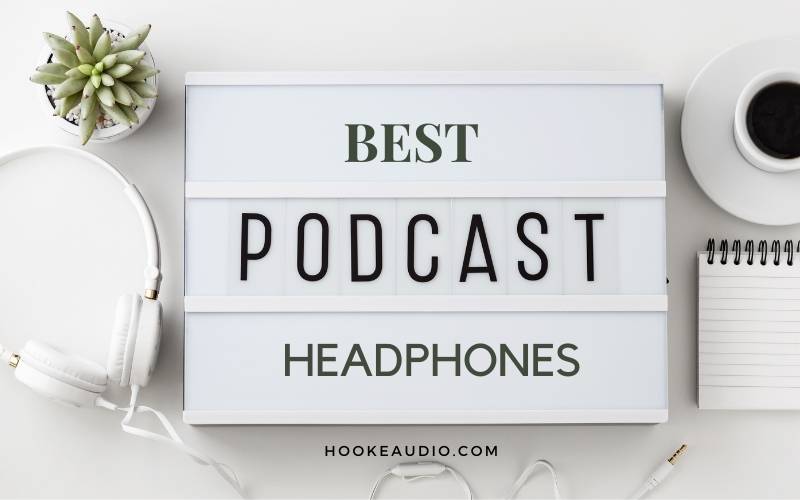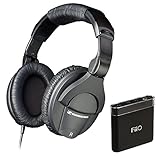- Anthony
Have you ever wondered why the podcasters often use the headphone, and they invest much money for that? Even though you are searching for a good for podcasting or only want to know the reason. And that’s exactly what Hooke Audio will help you with.
The best podcast headphones on our list come with great sound quality and well-placed microphones. If you choose one of them, you cannot find any sound leakage during recordings. Closed-back headphones can be an ideal pick for podcasting.
Contents
- 1 Top Rated Best Podcast Headphone Brands
- 1.1 1. Audio Technica ATH-M40x
- 1.2 2. Bose QuietComfort 35 Series 2
- 1.3 3. Beyerdynamic DT770 Pro 80
- 1.4 4. Sony MDR7506
- 1.5 5. Audio Technica ATH-M50X
- 1.6 6. Sennheiser HD 280 PRO
- 1.7 7. AKG K 240 Studio MKII
- 1.8 8. Sennheiser HD280 Pro
- 1.9 9. Bose QuietComfort 25
- 1.10 10. Grado Prestige Series SR325e Headphones
- 1.11 11. Superlux HD 681
- 1.12 12. Harman Kardon CL Precision
- 2 Factors to Consider When Buying Podcast Headphones
- 3 Type of headphone
- 4 Why Do Podcasters Wear Headphones?
- 5 FAQs
- 5.1 Are you able to use a microphone for podcasting?
- 5.2 Are you going to need two microphones for the podcast?
- 5.3 Can you record a podcast using a headset?
- 5.4 Can I record a podcast with AirPods?
- 5.5 Why are streamers using earbuds rather than headphones?
- 5.6 What headphones are used for recording?
- 5.7 Are you looking for a headphone amplifier or a speaker?
- 5.8 Can you podcast with headphones?
- 6 Conclusion
Top Rated Best Podcast Headphone Brands
| # | Preview | Product | Rating | Price | |
|---|---|---|---|---|---|
| 1 |

| OneOdio Wired Over Ear... | 66,893 Reviews |
$37.99
$31.99 | View on Amazon |
| 2 |

| PHILIPS Over Ear Wired Stereo... | 2,063 Reviews |
$19.99 | View on Amazon |
| 3 |

| M-Audio HDH40 – Over Ear... | 24,551 Reviews |
$38.46 | View on Amazon |
| 4 |

| OneOdio A71 Hi-Res Studio... | 13,136 Reviews |
$35.99
$30.99 | View on Amazon |
| 5 |

| Audio-Technica ATH-M20X... | 21,449 Reviews |
$69.00
$49.00 | View on Amazon |
| 6 |

| Shure SRH440A Over-Ear Wired... | 2,212 Reviews |
$125.00
$99.00 | View on Amazon |
| 7 |
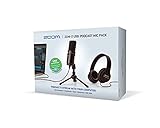
| Zoom ZUM-2 Podcast Mic Pack,... | 54 Reviews |
$129.99
$59.99 | View on Amazon |
| 8 |

| OneOdio A70 Bluetooth Over Ear... | 12,461 Reviews |
$49.99
$39.99 | View on Amazon |
| 9 |

| FIFINE Studio Monitor... | 280 Reviews |
$32.99 | View on Amazon |
| 10 |

| MAONO 50MM Drivers Studio... | 3,514 Reviews |
$48.99
$45.99 | View on Amazon |
1. Audio Technica ATH-M40x
This is the second Audio Technica product, which speaks volumes about the brand’s exceptional competence. Audio Technica made a minimal compromise regarding the M40x, even though it is lower up the list than the Audio Technica ATH M50x.
This headphone has 40mm neodymium speakers that enable it to produce an impressive audio quality. The sound quality is exceptional, with clear and crisp vocals at a wide frequency range. The M50x can reach up to 28,000Hz, while the M40x can reach 24,000Hz.
The M40x’s impedance is also lower than that of the M50x. The padded ear cups do not have a swivel feature, but they are comfortable and can block out a lot of noise.
The best thing about the M40x? It is almost half the price of its counterpart, the M50x. The Audio Technica ATH-40x is among the Best Podcast Headphones, and it’s a bargain at this price.
Pros:
- Amazing sound quality
- It’s budget-friendly
- Excellent at removing actual noise
- For extended use, soft ear cups that are comfortable and breathable can be worn for long periods.
Cons:
- The M50x is less flexible than the M50x
- The M50x has a lower frequency range and impedance than the M50x.
2. Bose QuietComfort 35 Series 2
The Bose QuietComfort 35 Series 2 premium headphones will give you the best podcast sound quality. The QC35 model has a well-rounded sound and can also be used as a pair of headphones.
These headphones can be used for more than just recording podcasts. They can also be used to DJ, mix, or even play games. Bose QC35 headphones have swiveling ear cups that allow for a wide range of movement while wearing headphones.
The pair of headphones can capture and monitor sounds. They are noise-cancelling, so you can record podcasts even in public places without being disturbed by background noises.
The QC35’s powerful lithium-ion battery can last for up to 20 hours before it needs to be recharged. Bluetooth adapter with Near Field Communication (NFC) is used to enable wireless connectivity. They can also be used with Amazon Alexa or Google Assistant to access music, information, and more.
The performance of the Bose QuietComfort 35 Series 2(QC35) headphones is exceptional. You will love them, which makes it a top pick for podcast headphones.
Pros:
- Amazing sound quality
- Earcups that rotate for easy use
- Features noise cancellation technology
- The rechargeable lithium-ion battery can last up to 20 hours.
- Bluetooth with NFC enables wireless design
- Google Assistant and Amazon Alexa Support
- Podcasting can be used in many other ways than podcasting.
Cons:
- None
3. Beyerdynamic DT770 Pro 80
Beyerdynamic DT 770 Pro 80 quality headphones are high-end, it is great podcast headphone These headphones offer a perfect blend of high-quality sound and a luxurious feeling. They cost more than the HD280 Pro or MDR-7506. They are well worth every penny you spend.
Three versions of headphones are available on the market: 32 Ohms (80 Ohms), 250 Ohms (250 Ohms). For podcast recording, the 80-Ohm version works best.
Comfort is the keyword here. The intense, spring steel headband is comfortable, and the soft earcups are great for podcast recording. The headband pressure applied to your head by the headband is about 3.5 Newtons. This is nearly half the pressure that Sennheiser HD280 Pro exerts on your head.
The sound quality is another reason why DT770 Pro has been classified as a high-end product. Closed-back headphones will love the sound reproduction, and podcast recording will be a breeze with the excellent bass reference. The spatial sound reproduction is perfect, despite the noise isolation. It is among the best headphones for podcast listening.
Pros:
- High-quality headphones, the overall experience is quite different from other podcast headphones on sale.
- Clear and natural frequency response. Decent flat response.
- It’s not too loud; it’s perfect for podcast recording
- The headband and ear cups are very comfortable and can be adjusted to make then snugger.
Single-sided cable to provide a simple recording experience. However, it cannot be detachable.
- Good sound isolation
- Excellent overall sound quality
- Stellar build quality
- Earcup padding and headband easily replaceable
Cons:
- A little heavier than Sony MDR7506
- Expensive
4. Sony MDR7506
First, the Sony MDR-7506 is superior to Sennheiser HD280 Pro in terms of build quality and design. If durability and aesthetics are important to you, then we recommend MDR-7506 over HD 280 Pro.
We were also drawn to these podcast headphones by their ability to be folded and lighter weight. The headphones are durable and affordable. These headphones are fabulous for podcasting because of their closed-back design.
The Sony MDR7506 headphones feature a powerful neodymium magnet and 40mm drivers for excellent voice quality. The highs are crystal clear, mids are good, and lows are pretty extended.
Pros:
- Bass isn’t too dominant
- Clear highs, clear mids, and extended lows
- Ear cups and headbands are extremely comfortable.
- Affordable earbuds
- High-quality voice quality. The sound is crisp, natural, and warm.
- It is compact, lightweight, and ideal for travel.
- Cord length
- There is no sound leakage.
- They are great for field and studio work, but they are handy for podcast recording because they provide a balanced sound profile.
Cons:
- The headphones’ frame was not made of good quality material.
- Extended usage can cause ear cups to become warm.
5. Audio Technica ATH-M50X
Audio Technica ATH-50X headphones are some of the Best Podcast Headphones. They are an excellent choice for podcast recording.
Top sound engineers and musicians around the world have praised their voice quality, performance, and clarity. The entire frequency response range (15-28000Hz) will be clear.
The circumaural design is well thought out and provides excellent sound isolation. DJs love these headphones for their 90-degree swiveling ears cups. They are well-padded, comfortable, and provide excellent support during one-ear monitoring.
The headphones’ headband is made from a durable material that enhances their fit. The headphones include two types of detachable coiled cables: coiled or straight.
Pros:
- Excellent build quality; solid and durable
- For added comfort, a well-padded headband, and replaceable ear pads
- Outstanding voice quality and performance; exceptional sound isolation
- Crisp vocals and deep, precise bass. The mids are not overwhelmed by the bass.
- Earcups that can be swiveled 90 degrees for single-ear monitoring
- There is no sound leakage
- Value for money
- Podcast recording is a great idea
Cons:
- The soundstage is small, and the imaging is not very good
- Highs can be very loud and cause headaches.
- In the warmer months, ear pads can become a bit sticky.
6. Sennheiser HD 280 PRO
If you are looking for headphones that offer high-quality sound but are affordable, the Sennheiser HD280 PRO is among the Best Podcast Headphones. Although the features are impressive, you might expect Sennheiser to charge more for this product. However, it is much less expensive than you would think.
The sound is clear and free from distortion, with highly accurate lows/highs. The frequency range is also impressive. If you plan to publish your podcast, the device has a passive noise-cancelling feature that can cancel out up to 32dB.
Its body design is elegant and beautiful. It is not only beautiful but also ergonomically designed with swiveling earcups and an adjustable, padded headband that will keep you comfortable even after prolonged use.
One of the best features of these headphones is the ability to replace individual components. You can return any part that fails, so you can continue to enjoy your headphones. This is why we have compiled our top podcast headphones for 2023.
Pros:
- Excellent voice quality
- It is relatively affordable for its features
- You can replace individual components
- Comfortable ergonomic design
- Passive noise cancelling of up to 32dB
- A wider frequency range
Cons:
- There is no active noise cancellation technology
7. AKG K 240 Studio MKII
These AKG headphones are mid-range, and I believe they offer the best balance of quality AND affordability. Although studio headphones are often thought of as being for musicians, they have all the rates that musicians want clear vocals, deep lows, and so on. These are the qualities podcasters also look for in headphones.
AKG describes their headphones technology as “Varimotion30 mm XXL transducers provide solid low end and accurate mids, and crystal-clear highs.”
Pros:
- The comfortable and comfortable wearing of the ver-ear during long work sessions
- Semi-open technology allows for solid bass and airy highs.
- Patented Varimotion 30mm XXL Transducer for precise signal transfer and great dynamic range
- For the perfect fit, self-adjusting headband
Cons:
- Not super efficient
8. Sennheiser HD280 Pro
The Sennheiser HD280 Pro Headphones have been voted the Best Podcast Headphones overall for multiple reasons. The headphones are fabulous for podcasters of all audio levels, whether they’re beginner, intermediate, or expert.
These pair of headphones sound great; they are comfortable, affordable, and close-back, which is crucial to consider when looking for the best podcast headphones.
These headphones are studio-grade headphones. They are incredibly sturdy and rugged in construction. The unique collapsible design makes it easy to transport.
Swiveling ear cups allow for maximum flexibility in monitoring and recording. If you are unhappy with the feel or material of the original padding, you can easily replace it. You can easily find all accessories and parts on the market.
Pros:
- Podcast recording can be made more accessible by using flat signals
- Amazing sound isolation
- An adjustable headband that is highly comfortable
- Value for money
- High-quality sound clarity and voice quality
- Compact design and space-saving features with swiveling ears cups
- High volumes of volume can be handled easily
- Excellent choice for professionals and beginners alike
- The headphones can be moved around with the help of the oiled cable
Cons:
- The leatherette material that covers the ear cups and headband looks cheap.
- The headphones are heavier than many of the other podcast headphones we have reviewed. The coiled cable makes them very bulky.
- For users wearing spectacles, headphones can feel tight.
9. Bose QuietComfort 25
The QC25 headphones offer excellent sound quality and comfort. The QC25 headphones are not wireless, unlike the QC35. They are, however, very similar in terms of performance, despite this significant difference.
It is a unique sound experience with a fantastic noise cancellation technology that can eliminate any background noise.
You can record your podcast anywhere you like, including your home studio or busy coffee shop.
It is made to fit snugly around the head and keep it from slipping off. The headband is made of a soft suede-like material, which reduces the risk of headaches.
Soft leather cushions are used to make the ear cups. They can also be turned and designed so that they perfectly fit your ears to block out outside noise. To enhance the voice quality, the headphone features Active EQ technology as well as a Bose TriPort.
The non-rechargeable triple-A single-A battery powers the headphone and can run for up to 35 hours. To enhance mobility, the product is lightweight.
The QC25 is a great headphone that you’ll want to buy. It is also a lot less expensive than the QC35, making it is one of the very best headphones for podcasting.
Pros:
- Can produce crisp, clear sounds
- Battery life of 35 hours
- Design for a comfortable headband and earcups
- Great noise cancellation technology
- Carry case lightweight for easy movement
- QC35 is significantly less expensive
Cons:
- The battery cannot be recharged
10. Grado Prestige Series SR325e Headphones
Grado Prestige Series SR325e headphones are a great choice if you have a lot to spend and want to make a sound investment.
These headphones are more than just a pair of high-end headphones. These headphones can produce excellent sound quality and a unique spatial arrangement.
These headphones are fabulous for editing and recording podcasts. It has a retro appearance that gives it an antique look.
They often struggle with the audio reproduction’s bass response, but the vocals sound great in the highs and middles.
The Grado Prestige Series SR325e’s only drawback is its price. If you don’t mind spending that much on a pair of headphones, go ahead. It is among the best headset for podcasting.
Pros:
- Retro-inspired design
- Excellent ergonomics for long-term listening
- Superior audio quality and a fantastic spatial arrangement
- Podcasts are great for editing, recording, and listening.
- Clear sound
Cons:
- It is quite expensive
11. Superlux HD 681
The Superlux HD 681 is among the best podcasting headphones. The HD 668 has a slightly longer bass, and they deliver an excellent audio reproduction that can be used to support instruments and vocals.
These good headphones have are a reasonably flat mid-range, but they can sound a bit sharper due to the bump in the high/low treble. This is especially true for tracks that are already bright.
They don’t have as immersive a Soundstage as some fully open-back headphones. However, HD 681B has a voice quality that is both enjoyable and pleasant for casual listeners.
Pros:
- Excellent voice quality.
- Lightweight design.
Cons:
- By design.
- Quality of plasticky construction
12. Harman Kardon CL Precision
There are very few headphones that can provide high-quality audio with minimal compromises on aesthetics. Harman Kardon CL Precision headphones are one such pair. These headphones are very stylish and sleek.
The headphones are made with a snug-fitting design with earcups that have slow retention memory foam. This makes them highly comfortable to wear. You can listen to music or record podcasts for hours without feeling any discomfort.
Earcups can be easily folded into a bag for transportability. They provide excellent passive noise isolation by providing acoustic sealing.
Two interchangeable headbands are available for the CL Precision. They can be either smaller or larger to fit any size head.
The Harman Kardon CL Precision is a good pair of headphones. It also has a modern design that is very pleasing. You can rest assured that you will get your money’s worth, even though it is a bit expensive.
Pros:
- Modern and stylish design
- Superb audio quality
- Earcups that fold up for portability
- Features two interchangeable headbands
- This design provides excellent noise cancellation through its acoustic seal.
Cons:
- It is pretty expensive.
Factors to Consider When Buying Podcast Headphones
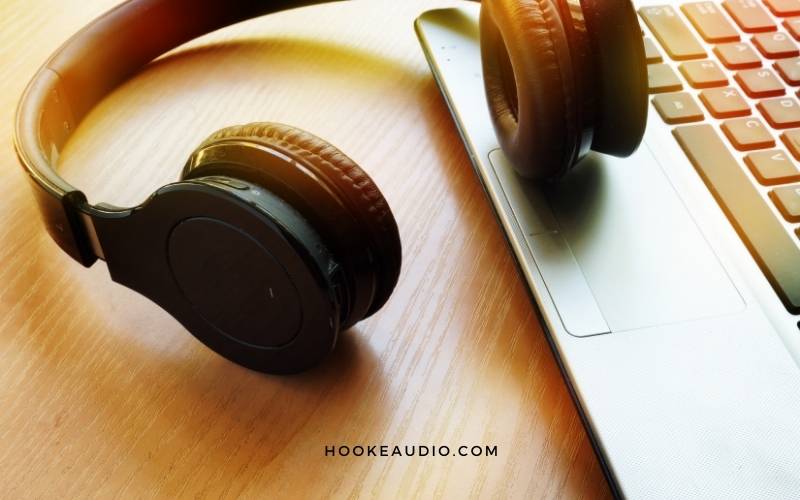
Price/Budget
While everyone may have a different budget, it is a good idea for you to consider how much you can afford before you begin browsing. There are many headphones to choose from, so the price does not always correlate with quality.
Comfort
These headphones will be worn for long periods, so comfort should be your number one priority.
It would help if you looked for lightweight headphones. Heavy styles can cause discomfort if they are worn for too long.
Comfort is achieved by using oversized headphone ear pads and padded cushions.
Because you can adjust your headphones to fit perfectly, this can make a huge difference.
Sound Quality
Higher impedance headphones will produce superior sound quality. These are two critical things to consider if you’re a podcaster looking for premium sound quality.
Wired headphones or wireless headphones
Wireless headphones are convenient, but sound travels faster when there is a cable to carry it. Even the most expensive headsets can’t defy physics.
Wireless headphones can cause a delay in hearing the audio after pressing play or hearing someone speaking.
Due to the latency issue and the fact that Bluetooth/wireless headphones are heavy, most podcasters prefer wired headphones.
They might tie you to a device, but nothing is more annoying than audio delays in your podcast recording.
Noise Cancelling
Great Sound isolation refers to headphones that block out outside noises such as traffic, fans, or other low-level noises – perfect for podcast recording.
Although noise-cancelling has its benefits, it is not necessary for podcast audio. A lot of noise canceling headphones can cause audio to be misrepresented. It also comes at a high price for a feature that isn’t needed for podcasters.
Battery life
Wireless headphones must be changed regularly, which can cause disruption mid-flow.
Frequency Response
Frequency response refers to the sound of your headphones, which can make a big difference in how you listen to your recording.
For podcasting, headphones with a flat frequency response range between 20Hz-20kHz are an excellent choice. When buying headphones for podcasting, you need to consider your microphone’s frequency range and frequency range. Remember that podcasts are all about clarity of voice. You don’t need headphones with loud bass tones separate.
Compatibility
It is crucial to have the right headphones compatible with your different audio devices. It would help if you chose a pair that can be integrated into your setup, whether a smartphone or a professional studio. Compatibility is determined by sensitivity and impedance.
Sensitivity
Headphones’ sensitivity determines how loud they are or how well they can transform an electrical signal into an acoustic. It is good to purchase headphones with sensitivity between 80 and 125 dB Sound pressure Level per milliwatt (SPL/maximum input power mW) for podcasting.
Read also: Best Headphone Extension Cable 2023: Top Brands Review
Type of headphone
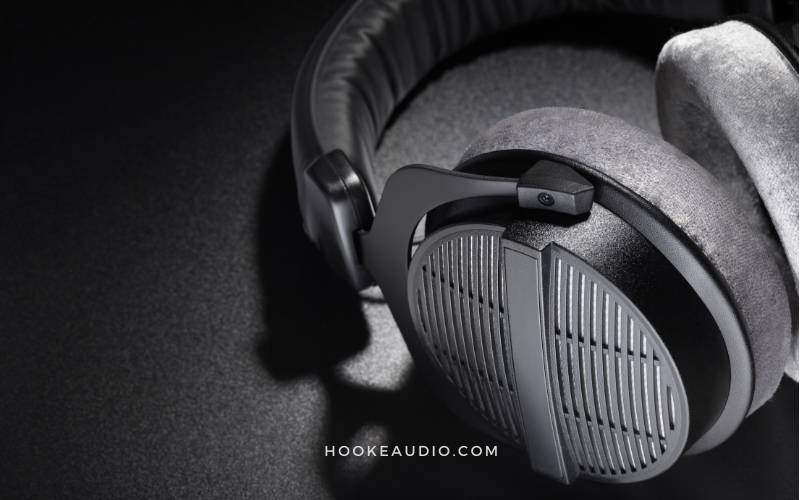
Open-Back headphone
Advantages
Better audio. This allows for better audio quality. This ‘better audio quality is only possible in soundproofed areas.
More external noise. Open-back headphones can take in more ambient noise, and the audio quality will be closer to what your listener hears.
Disadvantages
You get less isolation. Open-back headphones offer less sound isolation than closed-back headphones.
Sound bleed and leakage are a vulnerability. This happens when your microphone picks up sound leaked from your headphones. It hears both your recorded and live voice.
Less durable. Because of their open nature, open-back headphones are less resilient to moisture and less stable.
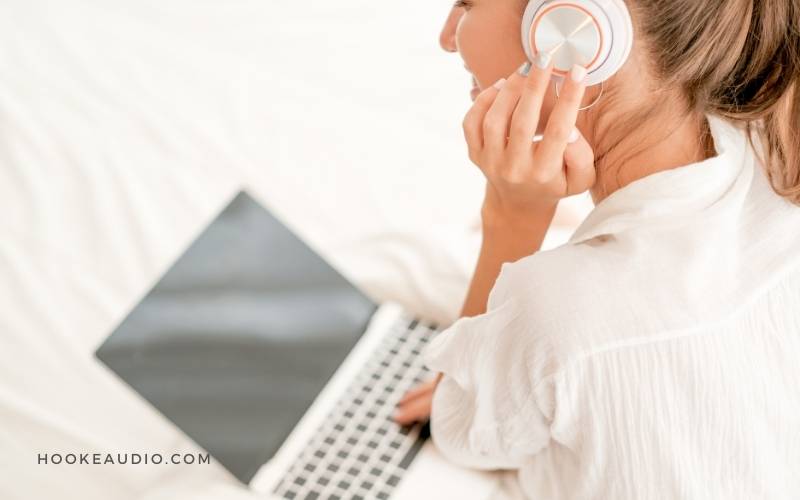
Closed-Back Headphone
Advantages
There is minimal sound leakage. Because the closed structure is sealed, no audio is emitted.
You can listen to your voice during recording with minimal sound leakage.
Disadvantages
Less raw audio. Closed-back headphones can produce less natural-sounding audio than open-back ones. They are more effective at blocking external sounds than open-back headphones.
For podcasting, it is preferable to use closed back studio headphones. Both during recording and after-production, you will benefit from better sound isolation and less risk of sound loss.
In-Ear
Portable. Because of their small size, in-ear headphones can be easily transported.
They are uncomfortable. They can become painful over time, making them unsuitable for editing or recording sessions.
Worse Audio Quality. In-ear headphones produce inaccurate frequency representation due to their small size (i.e., In-ear headphones have sub-optimal audio quality, making them unsuitable for podcasting.
High-priced. In-ear headphones are often more expensive than other headphones, but they offer a lower quality product.
On-Ear
Lightweight and portable. Because they are lightweight and portable, on-ear headphones are trendy.
Open sound. Because you can still hear what is going on around you, headphones worn over the ear give you a more open sound.
Over-Ear headphone
Over ear headphones are the preferred choice for sound engineers and podcasters alike.
Comfortable and excellent audio quality. The over-the-ear fitting is very comfortable, and the audio quality of the sound is fantastic.
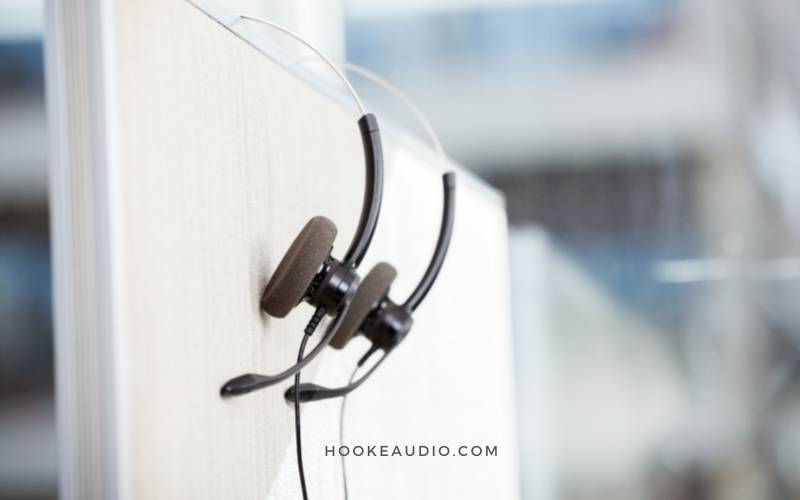
With or without a microphone?
A built-in microphone is a great option. It’s easy to use, less expensive, and requires no additional investment.
Low audio standard. The frequency of headset microphones is deliberately limited to pick up close audio.
A standalone microphone can have a more excellent frequency response which allows it to pick up the subtleties and nuances of your audio.
We all know that a good microphone is better than an inbuilt microphone. However, it’s up to you and your personal preferences. There are certainly some great options.
Why Do Podcasters Wear Headphones?
If we are truthful, every podcast host should have headphones. Here’s why.
Headphones can prevent audio echo and bleeding. Headphones prevent audio echo and bleeding, which preserves the integrity of your recording.
- Echo occurs when your microphone picks up the audio from your speakers. This can cause feedback and delay in the audio. It also makes it harder for guests to hear your voice.
- Audio bleed can be described as an echo but is more subtle. This is caused by headphones that aren’t made right. Closed-back headphones, for example, will leak less audio and prevent audio from bleed. This will be discussed in greater detail later.
You can hear your voice. Even though it may seem problematic, headphones allow you to listen to your voice. You have greater control over your recording because you can adjust the volume controls as you go.
You improved your mic technique. Because you can hear minute audio fluctuations, wearing headphones infinitely improves mic technique.
- Self-Review. Self-review by you and your guests. You don’t need to bother your guests while you record.
- Listen out for the sound of popping. This sound is caused by hard consonants such as p or k. Without headphones, it isn’t easy to hear.
External audio can be monitored. You can also wear headphones to check if any external audio is affecting your recording. This will protect you from unpleasant surprises in postproduction or awkwardly asking for a re-record.
Accuracy and editing capabilities have been improved.
- If you listen to your recording through computer speakers, it will be of sub-par quality.
- It can sometimes be difficult to tell if noises are in the track or your recording environment when editing with speakers.
Headphones provide a high-quality, accurate monitoring representation of your audio recording. This allows you to hear the subtleties and micro-details in the sound.
Headphones are essential to recording a high-quality podcast. You might feel a lot of pressure when choosing the right headphones. Let’s look at some ways to make informed decisions.
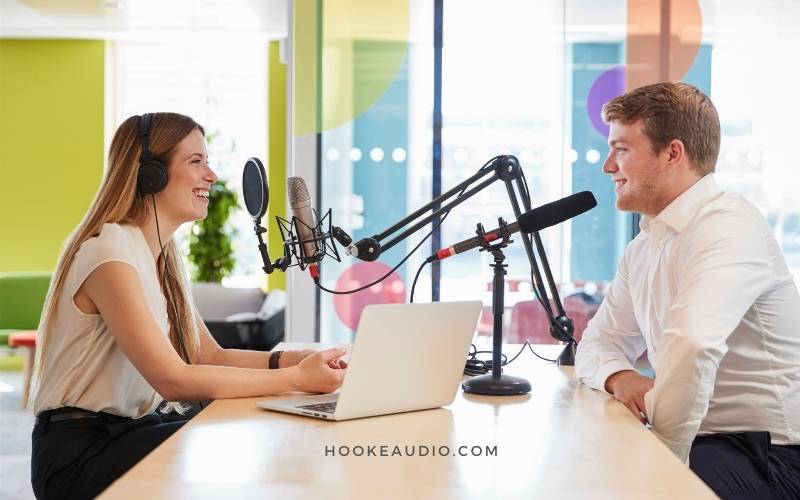
FAQs
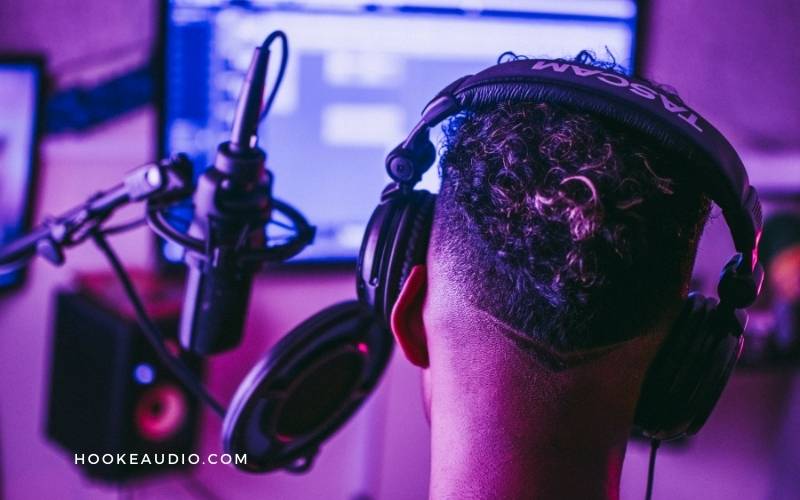
Are you able to use a microphone for podcasting?
If you are going to start a podcast, you will need a microphone. You will need one for each voice on your podcast. Your computer’s built microphone won’t cut it unless it sounds like you’re broadcasting from the toilet.
Are you going to need two microphones for the podcast?
Podcasts with two or more people will require an XLR microphone. Studio headphones are recommended. You can’t record more than one USB microphone on one computer, so you will need a USB mixer or interface with at least two XLR microphone inputs.
Can you record a podcast using a headset?
The best way to record your voice is with a good USB headset microphone. A headset is ideal for recording voicemails, podcasts, or online calls. It doesn’t require any stand or mic technique.
Can I record a podcast with AirPods?
My conclusion is that AirPods can be beneficial for listening to music and phone calls but not for recording podcast audio. The microphone doesn’t sound professional quality.
Why are streamers using earbuds rather than headphones?
streamers prefer earbuds over headphones for many reasons. Earbuds are portable and have solid sound quality. Earbuds can reduce noise leakage, are more comfortable, and make it easier to stream music for hours.
What headphones are used for recording?
Headphones can help keep your recordings clear and free of bleed. Bleed occurs when a microphone intended for one instrument or vocal picks up other sounds during recording. This can adversely impact the ability to separate instruments and vocals during mixing.
Are you looking for a headphone amplifier or a speaker?
It all comes down to personal preference and recording etiquette. But, ensure that the headphones and amplifier quality match. The worst component in a sound equipment system will always make it sound better.
A headphone amplifier can dramatically improve the audio quality. An amplifier can improve audio quality by amplifying weak audio signals. Headphones also allow you to adjust the audio level for each guest so that everyone can control the volume during recording.
Can you podcast with headphones?
It’s possible but not recommended. You will have limited editing abilities and the possibility of receiving feedback during recording. Your podcast will also not allow you to monitor your audio levels accurately.
Conclusion
You have just seen our best headphones for podcast reviews; we hope you have decided on your budget. We cannot go wrong with any times in this list; all of them were carefully tested by our experts and used by many radio professionals. If you ask the best one, this is Audio Technica ATH-M40x one of the best headphones on the market now; even though it is a little expensive, it’s value for money, comfortable, and perfect for podcast recording and listening.
Video:
Last update on 2023-09-26 / Affiliate links / Images from Amazon Product Advertising API

